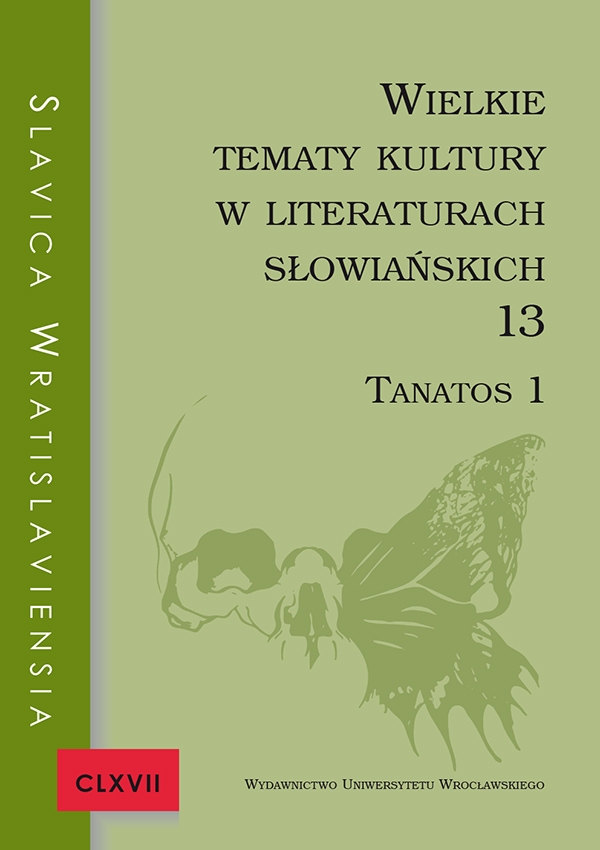

Artykuły

The theme of death in the works of Leonid Zurov
The article deals with the theme of death in the works of the writer of young emigration Leonid Zurov based on short stories and novels: Cadet, Ancient Path, Field, Blue Cow-wheat, Stage in Narva, Dagmar Forest. The presentation of this motif in the writer’s work has a cross-sectional character. The theme of death is central in the works of Zurov. In his works he represents events from the times of the Russian Revolution, World War I and the civil war in Russia — shows the tragedy of armed conflicts, which entail the death of many people. Wars, revolutions and other social cataclysms, according to Zurov, break the natural course of life and contradict laws of natural being. In order to artistic expression of his ideas, the writer uses mythological images and motifs related to death folklore, evangelical, eschatological writings. Tragedy in revealing the theme of death is removed due to the writer’s artistic philosophy, in which the world appears as a harmonious and expedient unity of existence. The teleological nature of being in the artistic world of Zurov is based on two most important ideas: the idea of the inclusion of a person in the circle of natural existence and the humanistic idea of the self-worth of each human life.
Temat śmierci w twórczości Leonida Zurowa
W artykule autorka analizuje temat śmierci w twórczości pisarza młodej emigracji rosyjskiej — Leonida Zurowa na podstawie opowiadań i powieści: Kadet, Dawna podróż, Pole, Ivan-da-marya, Poziom w Narwie, Dagmarski las. Przedstawienie tego motywu w twórczości pisarza ma w pracy charakter przekrojowy. Zurow opisuje w swoich dziełach wydarzenia z czasów rewolucji rosyjskiej, I wojny światowej oraz wojny domowej w Rosji — pokazuje tragedię konfliktów zbrojnych, pociągających za sobą śmierć wielu osób. Według pisarza wojny, rewolucje i inne kataklizmy społeczne naruszają bieg życia i są sprzeczne z prawami naturalnej egzystencji. W celu artystycznej ekspresji swoich idei pisarz ucieka się do mitologizacji obrazów i motywów związanych ze śmiercią folklor, ewangelia, pisma eschatologicze. Odsuwa tragedię na bok dzięki swojej filozofii, według której świat to harmonijna jedność wszystkich rzeczy. Zdaniem autorki opracowania teleologiczny charakter istnienia w literackim świecie Zurowa opiera się na dwóch najważniejszych ideach: idei włączenia człowieka do kręgu naturalnej egzystencji i humanistycznej idei godności każdego życia ludzkiego.